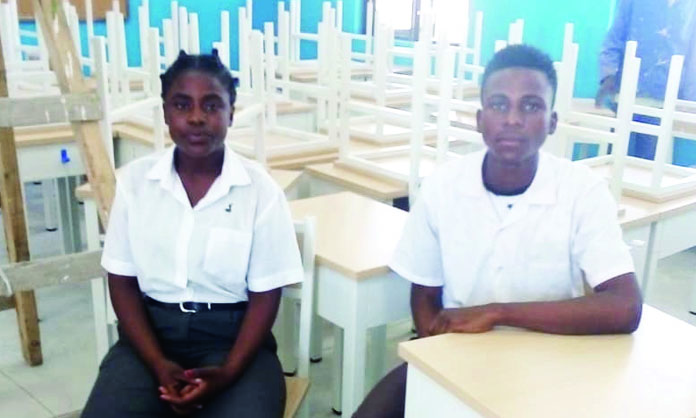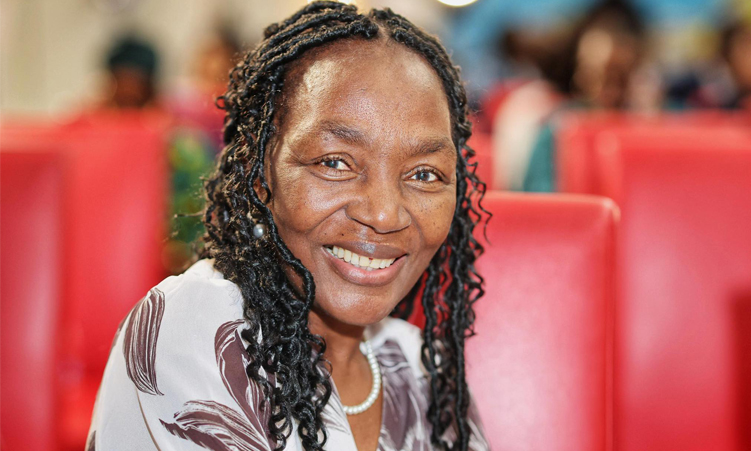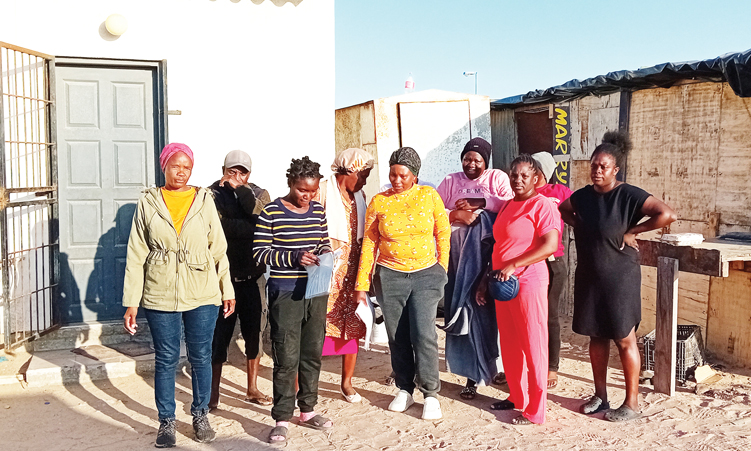Fortune Kabezela (17) says his dream of becoming an engineer is the only thing that keeps him walking to and from school for about 20 kilometres every day.
The Grade 9 pupil is from Dairy location and is among the Liselo Combined School pupils in the Zambezi region that have to get up at 04h30 to reach school at 06h50. However, some days he is late.
“It’s really discouraging, but I remind myself of what I want from life as I want to complete school, study and get a job to support my family.
“Sometimes it’s really tough to keep going, as I don’t always have food to eat at home. I hope they finish the hostel soon,” he says.
A Grade 9 pupil at the school, Patricia Malambo (16), who stays at Mpacha village, says she normally leaves home at 06h00 and returns at around 17h00.
“It’s really tiring to walk about 9km to school and back every day. It affects my concentration and overall performance. At times I don’t have anything to eat for lunch before attending afternoon classes at 14h30, so I just stay hungry.
“I can’t wait for the hostel to be completed as it would really improve our lives,” she says.
These long walks to and from school daily result in high rates of absenteeism, drop-outs, and lateness.
The school, which is situated in the Katima Mulilo Rural constituency, accommodates about 741 pupils from grade 0 to 9 from Liselo village and the town, and has 24 teachers.
A department head at the school, Seddy Simasiku, said this week that some of the pupils have to commute on foot as far as the Cowboy and Dairy locations.
However, they are hopeful that the completion of the hostel would cut the distance pupils have to walk every day.
“When the hostel is completed, we will be able to keep pupils here under our supervision in a controlled environment, whereby they would be on time and attend classes every day.
“Some parents are not literate, so they don’t know the importance of education, so they just deregister their children with the reason that they are taking them to another school.
“However, upon investigation, you will find that the pupil was just at home for the whole term . . . Due to poverty, other parents send their children to sell goods instead of encouraging them to attend school,” she said.
Simasiku said these challenges also affect the school’s overall performance, which is currently average.
The hostel to which Simasiku is referring is part of a Chinese government-funded grant of N$343 million for the expansion of classrooms, the building of hostels, dining halls, computer labs, accommodation facilities, teacher accommodation, and recreational sport facilities at two schools in the Kavango West region and two in the Zambezi region.
Liselo Combined School was one of the chosen beneficiaries, and the minister of education, arts, and culture, Anna Nghipondoka, officiated its groundbreaking ceremony last April.
Another head of department at the school, Mathew Toliso, said he was happy with the new facilities being constructed at the school, but it would have been great if teacher accommodation facilities were also included.
“It’s truly unfortunate, because teachers have to commute from town to school every day. Not all of us have cars. It becomes more difficult for us when we have to come back for afternoon studies,” he said.
Zambezi regional education director Jost Kawana yesterday said the construction of the two hostels at Liselo Combined School and Masokotwani Combined School is almost complete.
He said the ministry is also busy with furniture distribution to classes and dining halls.
“We are truly appreciative of this kind donation by the Chinese government, as it will greatly improve teaching and learning at the two schools.
“Pupils will now have decent accommodation and functional libraries, which they haven’t had before,” he said.
Stay informed with The Namibian – your source for credible journalism. Get in-depth reporting and opinions for
only N$85 a month. Invest in journalism, invest in democracy –
Subscribe Now!










